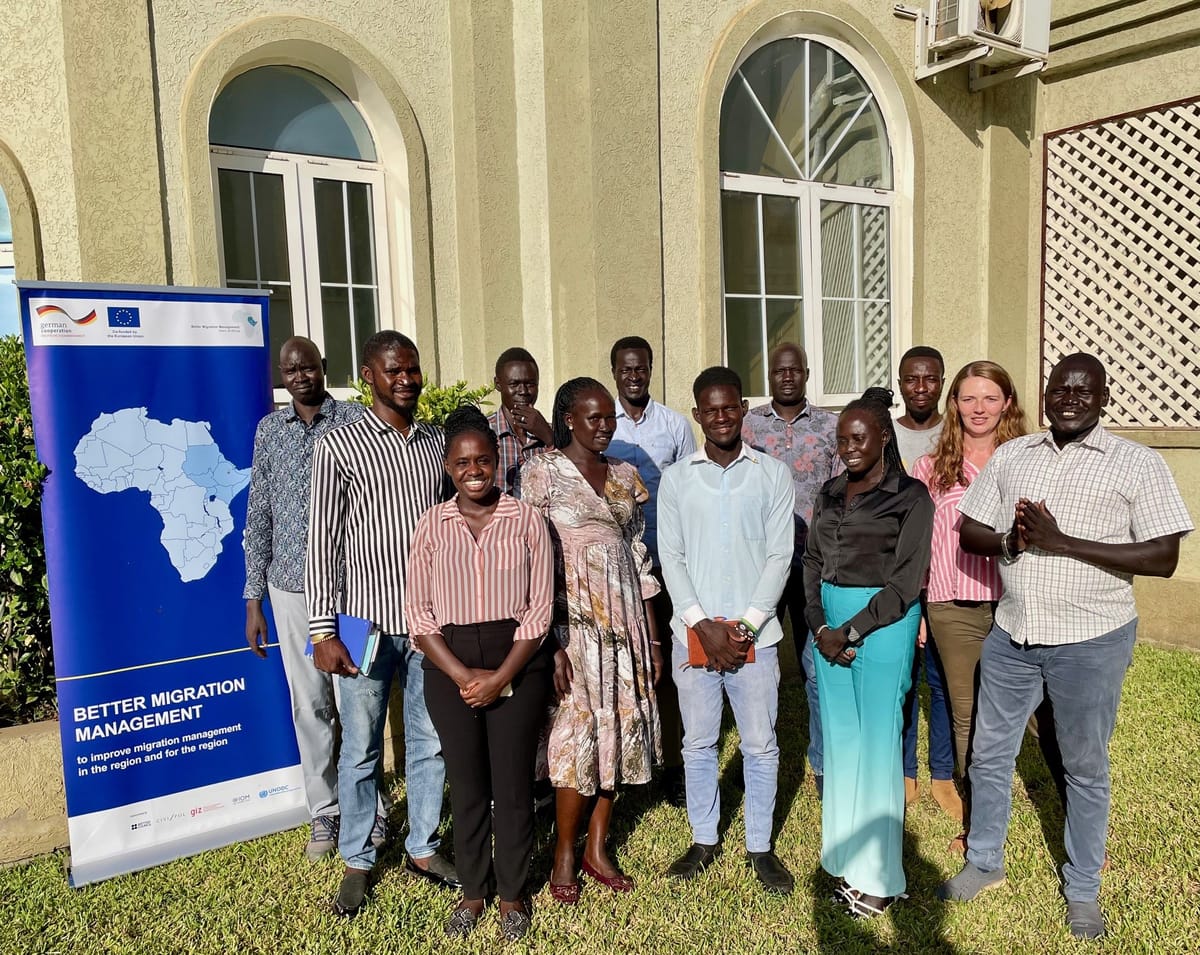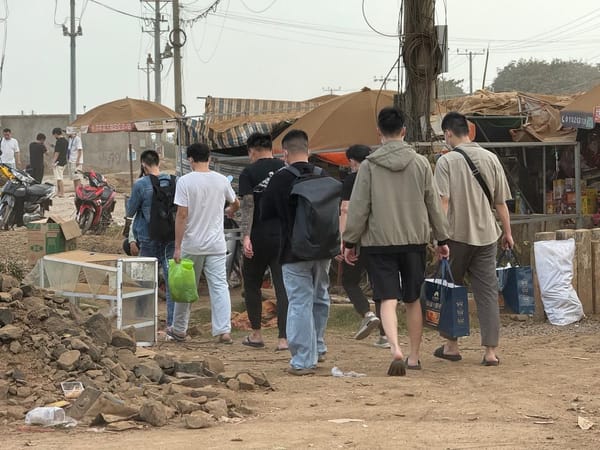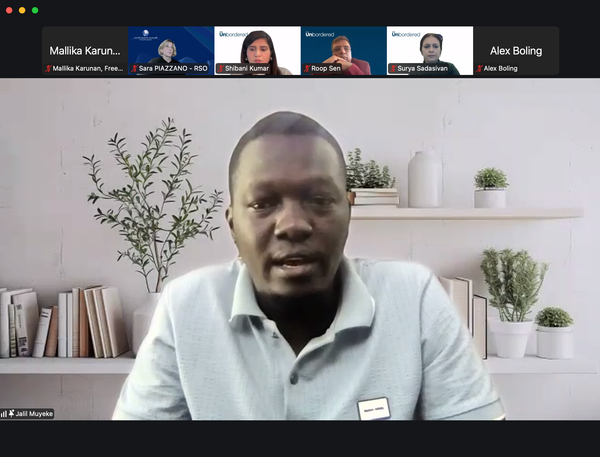Training for EHAAT members enhances their capacity to deliver ethical survivor inclusion
The EHAAT Network completes a training program on survivor-centered support, a report alleges abuses in Thailand’s immigration detention centers, and experts urge stakeholders to collaborate on safe migration strategies for Central Asian workers.

The final phase in a series of training events on survivor inclusion for East African civil society organizations (CSOs) was held in Juba, South Sudan, last week, focusing on ethical inclusion, security, and a trauma-informed approach. “Regional CSO Training on Including Survivors’ Voices” was designed by Kenya-based NGO Awareness Against Human Trafficking (HAART) to enhance CSO capacity to effectively engage survivors of trafficking and violence, and to empower organizations to support survivors in meaningful ways. The training has previously been delivered in Addis Ababa, Nairobi, Kampala and Hargeisa to other CSOs in the East and Horn of Africa Anti-Trafficking (EHAAT) Network.
The program has significantly enhanced the capacity of EHAAT members to engage and support survivors of trafficking and exploitation with sensitivity and professionalism, equipping participants with the skills needed to work responsibly with survivors and ensure their voices are included without compromising their safety or wellbeing. By helping embed survivor engagement into organizational culture, the training also ensures CSOs can implement long-term sustainable practices that center survivor perspectives, strengthening the overall impact and effectiveness of their anti-trafficking efforts.
The series was developed in response to a detailed needs assessment conducted during an EHAAT CSO Forum in 2022. HAART was then contracted by the Better Migration Management (BMM) Programme to design and deliver a curriculum that addressed the unique challenges CSOs face when engaging survivors. The training content has now been consistently delivered across all locations, facilitated by BMM, which is funded by the European Union and Germany. It ensures a unified learning experience for all participants and, to further support their learning journey, video tutorials for all sessions are now being developed as self-study materials, providing a resource for future reference.
The event included a comprehensive introduction to survivor engagement, covering key concepts such as trafficking in human beings, the importance of survivor inclusion, and the critical need for security, anonymity and confidentiality. Sessions also explored the trauma-informed approach, and the importance of preventing re-traumatization and re-victimization.
Participants further learnt about the importance of ethical storytelling and how to implement it responsibly at all stages of community interaction. Through practical exercises, group discussions, and case studies, they learnt to expand testimonials into more profound, impactful narratives. The training also covered ways in which to institutionalize survivor engagement and foster an organizational culture that prioritizes survivor involvement, including the establishment of leadership programs and capacity-building initiatives. This included detailed discussions on organizational structures such as advisory boards, along with budget planning, policies, communication channels, and human resource planning, with guidance on how to recruit and integrate survivors as staff and consultants.
This final training in Juba solidified the commitment of EHAAT members to ethically and effectively engage survivors. By providing a comprehensive understanding of ethical practices, security considerations, and institutional strategies, the training empowered organizations to create inclusive environments that amplify survivor perspectives. One participant commented that she had gained valuable knowledge relating to human trafficking and other types of exploitation, and expressed hopes that the training will help organizations in the region change their culture to better assist people and institutionalize survivors’ voices. She said that her organization now planned to focus more on a trauma-informed approach, taking steps to avoid re-traumatization and re-victimization, and ensuring that survivors are actively engaged, comfortable and informed before they become anti-trafficking advocates in their local communities.
Here’s a round-up of other noteworthy news and initiatives:
Amnesty International has called on the richer countries most responsible for global warming to agree at the COP29 climate conference in Baku, Azerbaijan, to fully pay for the catastrophic loss of homes and damage to livelihoods taking place across Africa. They must also fully fund African governments’ adaptation measures to prevent further forced displacement, stop human rights violations, and help them achieve a fast and fair phase-out of fossil fuel production and use, the group said.
A new report by the International Federation for Human Rights (FIDH) and the Union for Civil Liberty (UCL) sheds light on conditions in Thailand’s immigration detention centers, and analyzes the country’s failure to establish a legal framework and policies on immigration detention that comply with international human rights law and standards. Former detainees described severe overcrowding compounded by abuse and a sometimes fatal lack of healthcare, among other violations. The report also notes that, for the past several decades, Thai authorities have violated the non-refoulement principle.
Corporate Accountability Lab (CAL), Civic Response, and the University of Ghana School of Law last week submitted a grievance to the Ghana Cocoa Board (COCOBOD)’s grievance and redress mechanism on behalf of 30 cocoa farmers, focusing on issues including the use of illegal pesticides and child labour, and urging the agency to take immediate action. The petitioners are calling for a living income for farmers, compliance with commitments to end deforestation, better regulation of pesticide use, and child labour monitoring systems.
A study titled New Frontiers: The Use of Generative Artificial Intelligence to Facilitate Trafficking in Persons, published by OSCE and the Regional Support Office of the Bali Process (RSO), looks at the emerging nexus of artificial intelligence, trafficking in persons, and transnational crime, with the aim of equipping policymakers, law enforcement agencies, and the technology sector with the insights needed to anticipate and pre-emptively address the potential implications of AI on trafficking in persons.
Panelists at a Solidarity Center webinar last week highlighted that safeguarding the rights of Central Asian workers amid changing migration flows is a challenge best addressed when stakeholders join together to develop and coordinate safe migration strategies. Migrant workers from the region are navigating a rapidly changing environment due to shifts in economic options and political instability, while a growing number of women and young people are seeking to migrate. Key recommendations include facilitating cooperation with destination countries and improving migrants’ rights.
A report by the NGO No Name Kitchen accuses Croatian police of incinerating migrants’ belongings – including clothing, mobile phones, and passports – and pushing asylum seekers back at the border. The activist group accuses authorities in Croatia of employing “a systematic and brutal modus operandi” against migrants, including stripping them of their belongings to burn in front of them. Croatia’s interior ministry said it had no knowledge of the alleged events.
Doctors in the UK have identified Britain’s immigration system as a “public mental health concern” that inflicts harm on asylum seekers, and risks re-traumatizing those already affected by psychological distress. The Royal College of Psychiatrists (RCPsych) has called on ministers to review immigration laws introduced by the last government, saying the ruling Labour party had a “moral and ethical obligation” to protect the mental health of those seeking sanctuary in the UK.
A live webinar on Charting Indonesia’s Marine & Fisheries Future in The New Leadership Era will be held tomorrow from 9:30 to 15:30 WIB, hosted by Destructive Fishing Watch Indonesia. Topics for discussion include efforts to protect workers in the shrimp cultivation sector, with speakers including labour rights experts and representatives from the government and business sectors.




